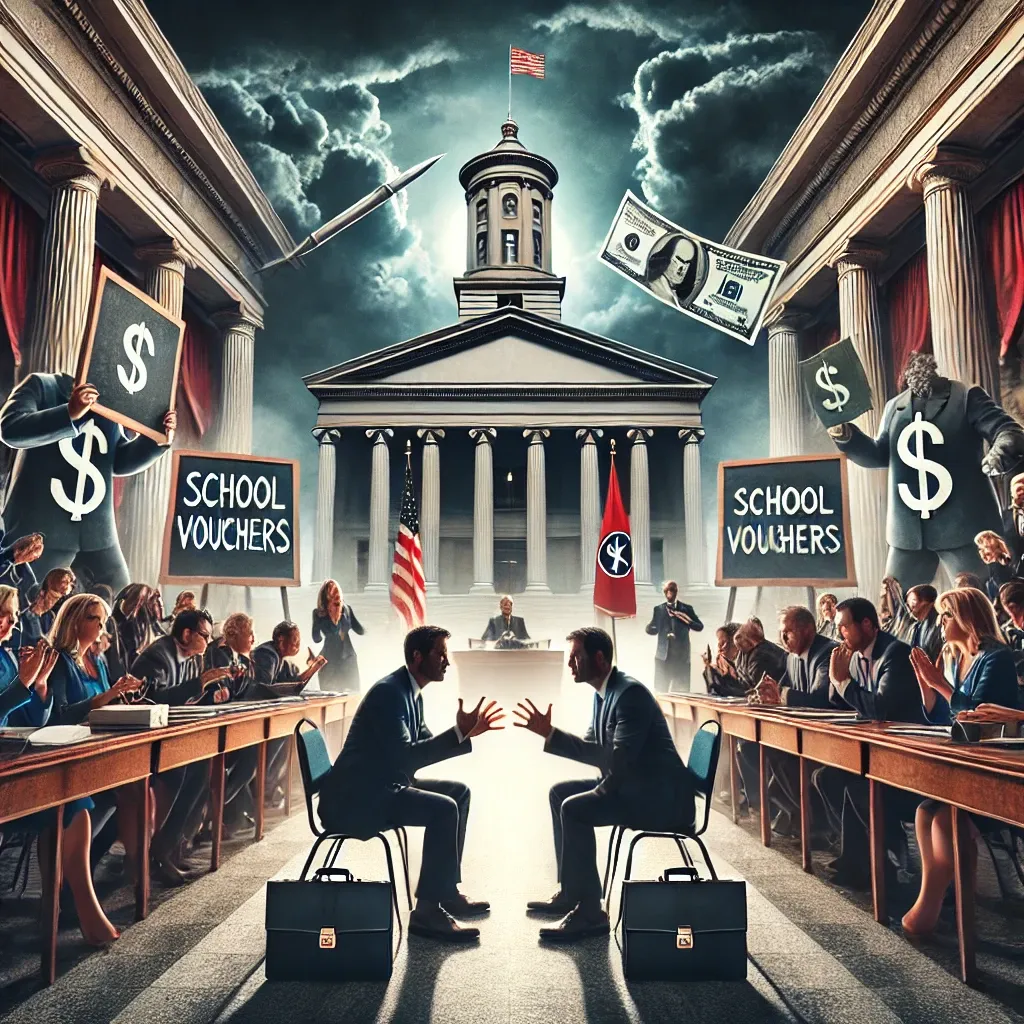South Carolina Supreme Court Declares School Voucher Program Unconstitutional Setting Precedent and Creating Potential Legal Challenges For Governor Lee's "Freedom Scholarships"

As Tennessee prepares to revisit its proposed school voucher bill in the upcoming legislative session, a recent ruling by the South Carolina Supreme Court offers a sobering glimpse into the potential consequences of government-funded private education programs.
While proponents of school vouchers argue that these programs provide families with greater educational choice, local conservative grassroots warn that they inevitably would lead to increased government control over private and homeschool education.
The experiences of South Carolina and Tennessee reveal key legal, constitutional, and financial challenges that could shape the future of education in both states.
In South Carolina, a Republican-backed school voucher law was struck down by the state’s Supreme Court, which ruled that the program violated the state constitution’s prohibition against using government funds to directly benefit private educational institutions.
Under the proposed program, up to 15,000 students would have received $6,000 annually to pay for private school tuition through publicly funded savings accounts. However, the court found that public funds were being funneled to private schools, undermining the state’s obligation to provide a free public-school education, open to all children.
The South Carolina court raised concerns about discriminatory practices of some private schools, particularly in regard to disabled students, and the potential for exacerbating segregation and inequality in rural districts.
The ruling also criticized the expansion of the state Superintendent of Education's authority to administer the program, arguing that it stretched beyond her constitutional role of overseeing public education.
Tennessee’s proposed Education Freedom Scholarship program shares many similarities with South Carolina's law.
Governor Bill Lee’s proposal would provide $7,100 annually to students, which could be used to attend private schools. However, just as in South Carolina, opponents argue that public funds should not be diverted to private institutions, especially when those institutions are not required to serve all students equally. It is this aspect of the legislation that was a major component to the ruling of unconstitutionality in South Carolina.
Lisette Reynolds, the Tennessee State Director of Education would be the person who would oversee the administration of the scholarships and directing their use by determining which private and homeschools would qualify for the funds, and if there are any criteria that would either qualify or disqualify the schools who raise a hand to participate.
In testimony Reynolds provided at a hearing in January of this year, when asked about the existing ESA program in Tennessee that services Davidson, Shelby and Hamilton Counties, Reynolds reported “The results aren’t anything to write home about, is my understanding,”.
Logically, it then follows that expanding the same concept, and with even more public money, to the tune of $140 million dollars, is not going to produce a better education for Tennessee’s children, when the root causes of exactly why public schools are failing is never being addressed.
In Tennessee’s voucher program, it would cover up to 62% of the average private school tuition cost. Additionally, Tennessee’s proposal leaves open the possibility of increasing the number of voucher recipients in future years, which raises questions about long-term financial sustainability. If the program grows as expected, Tennessee could face an annual expenditure exceeding $287 million by the 2025-26 school year, with costs potentially soaring beyond that.
Private schools in other states that have universal vouchers have seen costs soar far above budget projections.
According to this report:
“Arizona’s voucher experiment has since precipitated a budget meltdown. The state this year faced a $1.4 billion budget shortfall, much of which was a result of the new voucher spending, according to the Grand Canyon Institute, a local nonpartisan fiscal and economic policy think tank. Last fiscal year alone, the price tag of universal vouchers in Arizona skyrocketed from an original official estimate of just under $65 million to roughly $332 million, the Grand Canyon analysis found; another $429 million in costs is expected this year.
As a result of all this unexpected spending, alongside some recent revenue losses, Arizona is now having to make deep cuts to a wide swath of critical state programs and projects, the pain of which will be felt by average Arizonans who may or may not have school-aged children.”
In Iowa, for the 2024-2025 school year, The Iowa Legislature provided about $180 million dollars to vouchers. However, in July Governor Kim Reynolds announced that more than 30,000 applications were approved in year two of their program, which provides $7,826 per voucher recipient. Multiplied by 30,000 applications, that number comes to $234,780,000 in taxpayer dollars for private school tuition, a projection that is more than $50 million higher than that amount originally projected.
The South Carolina ruling is likely to influence the debate in Tennessee’s General Assembly, where vouchers are set to take center stage.